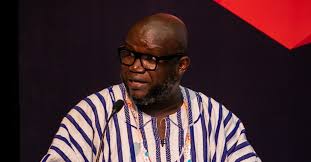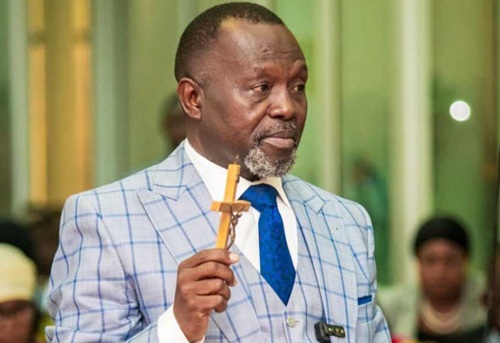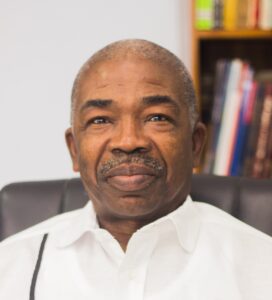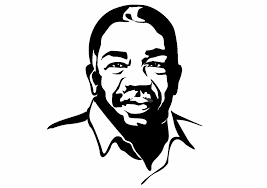Project Managers as ambassadors for achieving Ghana’s transformation agenda through effective project management
Salutation and thanks to Vanessa Selasi Nana Aba Sam my research assistant and Derek Laryea who put together the slides for the presentations. All errors are mine but any brilliance you will see is as a result of their work.
Conference Theme: – Achieving Ghana’s transformation agenda through effective project management is very apt and timely and I am sure the previous speakers and you the participants have done justice to the theme and we will all go out of here knowing how to achieve Ghana’s transformational agenda through effective project management with Professional and well trained Project Managers driving that change. I am here to just provoke your final thoughts and get all of us packing off as ambassadors of the change we want to see.
Outline
- What do project managers do?
- How have we framed Ghana’s transformation agenda?
- What have been the causes of project failures in Ghana?
- Who are Managing Projects in Ghana
- What is effective project management?
- Recommendation
- Conclusion & Epilogue
- Bibliography
What do project managers do?
While projects are now recognized as a means to achieve competitive advantage in Africa, project management still remains a Cinderella field. (Rwelamila & Purushottam, 2012).
Project managers are the people who have the responsibility of planning, executing, controlling and closing of any project within an organization, be it private, 3rd sector or the public. It is a fact that the state in Ghana is the largest spender and who controls the highest number of projects and programmes and if we should succeed, these should be managed professionally. We need to also disabuse our minds of the Project just being typically limited to the construction industry, engineering, architecture, computing, and telecommunications. Management by Projects is an effective way of management.
 Some of the roles of a project manager include:
Some of the roles of a project manager include:
- Planning, budgeting, overseeing and documenting all aspects of the specific project being worked on;
- Working closely with project sponsors including the politicians and upper management to make sure that the scope is properly defined and do not creep and projects are on schedule, within budget and deliver maximum satisfaction to stakeholder;
- It is our responsibility to manage the commitment and productivity of team members, and motivate them to excel;
- We need to align projects and programmes to national and organizational strategic goals, manage stakeholders, communicate project status, milestones and unexpected difficulties effectively;
- Developing and maintaining trust among all of the project’s stakeholders is our responsibility as project managers: the sponsors, those who will make use of the project’s results, those who command the resources needed, and the project members;
- Assist with the gathering of business requirements for projects
- It is critical for the Project Manager to be a learning person – Improving our own and teams’ skills through lessons-learned reviews at project completion.
- It is critical for the PROJECT MANAGER to ensure sustainability of projects beyond the launch. Taking into consideration the Total Cost of Ownership right from the onset, from the project initiation stage through the life cycle of the project
How have we framed Ghana’s transformation agenda?
How many national plans have we had as a country? From colonial times to Ghana, we have had a lot of different plans. What has happened to these plans and our match towards development? What has gone wrong? Have we achieved what we set out to do from these plans? From Kwame Nkrumah’s plan through to Vision 2020 to the 40-year development plan under John Mahama (2018 – 2057) to President Nana Addo Dankwa Akufo-Addo seven-year Coordinated Programme of Economic and Social Development, the agenda for job creation, prosperity and equal opportunity. What has been the common theme that has run through all of them in terms of success?
I have questions for all of us –
- Have we involved the principles of project management in crafting these plans?
- Have we had project managers involved?
- Could the applications of the principles of project management and involvement of project managers have improved the likelihood of success of these plans?
- What is PMI Ghana doing to ensure that from today to go Project Ghana succeeds? I believe this from National Project Management Conferences we have started taking the steps and the Confab should not just be talk-shop but should contribute to Ghana’s transformation into a first world.
Our current mantra for national transformational as a country, Ghana beyond aid, could this be considered as a programme that is “a group of related projects, sub-programmes, and programme activities managed in a coordinated way to obtain benefits not available from managing them individually”. May be we will consider it, Ghana Beyond Aid, as a portfolio of projects and programmes that will require portfolio project management – an approach to coordinate the portfolio of projects or programs, to achieve Ghana’s developmental objectives.
 My call to all of us Project Managers and prospective project Managers is that our focus as the ambassadors of transformational and trans-generational change should be to drive Ghana’s transformational agenda making use of Portfolio Project Management to ensure that our country is doing the right work rather than doing the work right (Patanakul, Curtis, & Koppel, 2013). These are 2 different paradigms; I will postulate that for most of the time, we have been focused on doing the work right rather than doing the right work. Is it common knowledge that a lot of the time we spend our time delivering outcomes of projects based on foreign development partners, so-called, rather than focusing on the right work for our people?
My call to all of us Project Managers and prospective project Managers is that our focus as the ambassadors of transformational and trans-generational change should be to drive Ghana’s transformational agenda making use of Portfolio Project Management to ensure that our country is doing the right work rather than doing the work right (Patanakul, Curtis, & Koppel, 2013). These are 2 different paradigms; I will postulate that for most of the time, we have been focused on doing the work right rather than doing the right work. Is it common knowledge that a lot of the time we spend our time delivering outcomes of projects based on foreign development partners, so-called, rather than focusing on the right work for our people?
A typical example is a market at Apam Junction, which has been sitting unused since 1980 when I was a student at St. Augustine’s College Cape Coast. I am sure that some bright donors made available some cash and some equally brilliant state officials decided for the people without a proper stakeholder engagement and decided that the people will need a market and it should be situated at where it currently has been wasting away. So the deliverables was a market, scope defined, budget set and the scheduled also firmed up. At the end of the outcomes might be achieved but what has been the impact of the project? I can tell you it is still sitting there of no use to the people. If it was a loan they will be paying back but for what purpose?
Can we say that we have been focused on doing the right work all this while as a country? Have we managed our projects and programmes well in the past 62 years of managing the Ghana Portfolio of Projects and Programmes? If we were running Ghana as a portfolio of projects and programmes will our scope and requirement identification lead us to party manifestos that has characterized the life of our 4th republican constitution that send us on this yo-yo where we in a maximum of 8 years we abandon one plan and move to the other and start all over again. Or as project managers, we will suggest that all of the use as a country doing a proper and extensive stakeholder engagement and management we agree to National Agenda or Plan, which will form our national scope. Then the standard for judge political parties will rather be a set of KPIs that will measure how well they the political parties are able to implement and execute these plans as we have agreed. Will that be a better way of running our country?
Is that something that as Project Managers we are open to researching and applying our technical knowledge to offer a recommendation to Ghana? It is important that PMI Ghana and all professional bodies took our rightful places and filled up the current vacuum we have created, totally surrendering the national space for national decision making and conversation to the politicians. Where even technical subject areas such as Project Management have been taken over by partisan political division instead differences based on theory, practice, and research.
There is the current discussion on the need for Value For Money Audit for the Sino Hydro Projects. Some politicians say it should be done as a condition precedent to the actualization of the contract, others say it can be done anytime within the project, even at the closing stage. This is not a political debate but a technical one that Project Managers and organizations such as PMI Ghana should have the say. There is a place for political power and but definitely a place for technocratic power too. A blend of the two is what required in our match towards Ghana-Beyond-Aid.
From industry practices, I will adopt the conclusion of Cooper, Edgett, & Kleinschmidt, (2001) that the maximization of portfolio value, portfolio balance, and strategic alignment are the typical goals of Portfolio Project Management for National development
What have been the causes of project failures in Ghana?
 In Africa, a number of studies have found that projects seem to appear almost randomly in organizations and nations. In most of these organizations and countries, projects are unlinked to coherent strategies; upper managers and the political leaders are unaware of the total number and scope of projects being undertaken. As a result, some people seem to confirm Graham and Englund’s (2004) argument that we work at cross purposes, on too many unneeded projects, and on too many projects generally. Giving projects a strategic emphasis helps resolve such feelings and is the first move toward creating an environment for successful projects.
In Africa, a number of studies have found that projects seem to appear almost randomly in organizations and nations. In most of these organizations and countries, projects are unlinked to coherent strategies; upper managers and the political leaders are unaware of the total number and scope of projects being undertaken. As a result, some people seem to confirm Graham and Englund’s (2004) argument that we work at cross purposes, on too many unneeded projects, and on too many projects generally. Giving projects a strategic emphasis helps resolve such feelings and is the first move toward creating an environment for successful projects.
Many of these projects face several setbacks, such as total abandonment, cost deviation, schedule deviation, scope deviation, and creep and stakeholder dissatisfaction. What is project failure and how will we define it?
- Is it an inability to meet the satisfaction of various stakeholders needs, a very subjective definition?
- Other research says if a project fails at the initiation phase, it can be classified as a total failure. (Damoah, Akwei, Amoako, & Botchie, 2018) say that if the project is abandoned before actual implementation or halfway through the project life cycle – Total Failure
- If the project is out of scope (or requirement), goes beyond schedule (time), runs over budget (cost)? Do we go with the traditional definition of failure by these triple constraints? It is argued that beyond the management phase where the triple constraint is critical, a project could have failed at the management level but at the usage phase be considered a success – famous example is the Sydney Opera House project, which is considered an engineering masterpiece despite taking 15 years to complete (way beyond its schedule) and being 14 times over budget.
- Or if the project delivers all its deliverables or outputs but fails to make the desired impact then that project has failed? That is my preferred definition, focusing on outputs rather just outcomes.
- In the Ghanaian context to quote (Damoah et al., 2018) if a project is abandoned that project will be defined to have failed. Here if it is abandoned over 2 to 4 calendar years, I will classify it to have failed.
So our country is littered with a lot of failed projects, from private to state projects, especially the latter. I task all of us here today, that there is an opportunity that waits for us that can release a lot of jobs, cash and resolve our housing deficit challenges while releasing a burst of prosperity to Ghanaians if we consider restarting and completing all abandoned projects.
Can you imagine if there is a national project to complete all these abandoned housing projects that litter the whole of Ghana, through some schemes that gives the original owners some share in the future of the property when completed, It will get rid of all the crime that is associated with these uncompleted projects, the time value of money that is lost when sunk in concrete etc. This is an initiative that will require Professional Project Managers to consider and think through innovative solutions. As we are it let me give us all other assignments that I believe can help transform Ghana, we need innovative and disruptive solutions and not these incremental movements that will perpetually leave that gap between us and the developed world.
- Completely doing away with cash and going digitally – Yes no country has done it before, but who says we have to wait for others to do it before we copy?
- Completely do away with the representative way of taking decisions as a country, i.e. Parliament and the Local Assemblies. Where we choose a few people to go represent us and believe that they will go take decisions in our interest. Have they ever come back to account to us? Can we replace this with a technology system that enables us all to participate in the decision-making process actively and decisively?
These are just a few of the disruptive thoughts that keep me awake all night. Can we consider it?
Ghana’s pursuance of growth and development has been through the implementation of government programs and projects. Over the years, a significant amount of money has been solicited from many developing partners such as the International Monetary Fund (IMF), the World Bank, tax revenue, our natural resources to embark on programs and projects. Nevertheless, the literature suggests that most of these projects have failed (Damoah & Akwei, 2017). The Auditor General’s report is a good confirmation of that. A comparison to other countries we began the journey of independence with, some with lower GDP at the time of independence, including Malaysia and Korea are testament the fact that the Ghana Portfolio of Projects and Programmes have had more failure than successes. I, therefore, propose that corruption may influence these programs and project failures. I will also go ahead to also postulate that it is because we have not had Professional Project Managers who live up to their Ethical and Professional codes managing these project and the time to make the change is now.
From the Transparency International reports over the years Ghana has been classified as a corrupt nation, some will argue that it might be a perception index. But that is our perception of ourselves. For me, there is a confirmation test, which is internal to us, the Auditor General’s report. It confirms that TI reports and the fact that though we watch the Public Accounts Committee of Parliament live on TV, sitting the year in year out we all agree not to do anything about it and these corrupt practices are perpetuated on a continuous basis. Tells me we have to change, renewal of our hearts and minds, we need a metanoia (Greek word for a change of heart). Thank God for Ace Ankomah and his group who went to court to enforce our own laws on surcharging and the current AG who is taking on the status quo. There is some change coming, but Project Managers you have a huge role to play as a catalyst to speed up this process.
Corrupt practices, such as bribery of government officials by local and foreign entities and private companies, “facilitation of payments,” fraud, embezzlement, theft, collusion, rent-seeking, market rigging, insider trading, tax dodging, nondisclosure of conflicts of interest, and illicit party funding exist in the country and are pervasive. We need to fix this and it starts with you and me. We need to go beyond the enactment of laws. We seem as a country to believe that law enforcement is just about having the laws. We need to move to the execution stage – implement and enforce these laws on the hot-stove principle and stop the spider web philosophy where the law only catches the small insects and the big animals fall through the web. This is the situation that we currently have with the galamsey fight, only the poor workers in the pit who themselves are victims are arrested and the influential people such as the politicians, chiefs, business people, security persons and other ‘big men’ who fund and finance this illicit trade are left off the hook. At best when Ayisa Huag a Chinese kingpin is arrested government will issue a Noelle Prosiqui and deport her. We also need to strengthen the anti-corruption organizations and ensure that they work without fear of favor.
My solution is to say we can counter a lot of these corrupt practices and project failures when professionals, including Project Managers, live up to their ethical and professional codes of conduct. I recommend that Project Managers, professionals properly so trained and accredited should be the arrowheads to drive Ghana’s transformational agenda through projects and programme management.
Generally, the causes of failure of projects include
- Communication
- Expertise/knowledge
- Funding/finance
- Planning
- Resources
- Scope change
- Socio-culture
Research done by Damoah, Akwei and Mouzughi (2015) cites
- Poor monitoring of projects,
- Political interference,
- Change in government,
- Bureaucracy & institutional bottlenecking
- Poor management and administration practices
- Lack of continuity,
- Variation and Fluctuation of prices,
- Poor or lack of planning,
- Delays in payment and release of funds as the top ten (10) out of thirty-two (32) overall rankings for the causes of project failure by the Government of Ghana.
The total 32 factors identified were classified into four groups: Leadership, Management, and administration practices, Resources, and external forces.
Data from this research see the general public unanimously agreeing that poor leadership is the biggest cause of Ghana government project failure; this is followed by poor management and administration practices, low resources, and external forces respectively (Damoah, Akwei, & Mouzughi, 2015). I agree with Isaac Sakyi Damoah et al when he states inter alia “Surprisingly, attention has not been paid to corruption as a source of government project failure (especially in developing countries) by researchers, despite the pervasiveness of the phenomenon in these countries. We, therefore, propose that corruption would influence Ghanaian government project”
What Percentage of projects in Ghana employ professional Project Managers – do we get qualified and certified professionals manage projects in Ghana, those who do, do we measure them to their ethical codes and professional conduct?
Research conducted by the Project Management Solutions, Inc. in 2014 shows that 61% of small firms, 88% of mid-size firms and 90% of large firms around the world employed the use of Project Management Offices (PMOs). These PMOs continue to be an organizational fixture that provides significant value to the business (Project Management Solutions, Inc. 2014). In 2018, it was estimated that by 2027, employers would need to fill nearly 90 million project management related roles (LeaderQuest 2018). The questions are will this include our State Owned Enterprises, Ministries, Departments, and Agencies DA as well as Metropolitan, Municipal and District Assembles? What is your verdict?
Research says that on average, 8 out of 10 project managers in Africa are accidental or have an inadequate project management (PM) knowledge base; Project Manager training is falling short of some fundamental knowledge areas; and organizations, which are supposed to be centered on programs and portfolios, are, in practice, project-oriented organizations by default (Rwelamila & Purushottam, 2012). For Ghana, it was difficult to find data on how many projects use Professional Project Managers. With the total number of Project Manager trained and the total number of projects that are run and the number of project managers who do not get opportunities to work on projects there is a gap, how big is that gap? I agree that the 1-Project-1-Project Manager (1P1PM) programme is must; let’s bring it on to transform Ghana.
I pray by the end of this conference we will have solicited and converted first the Private Sector and the 3rd sector support the crusade to ensure that they adopt Project Management and Professional Project Managers to handle their projects. The referrals from these 2 sectors will get the government to put out policies to ensure that we only have professionals managing projects. Then we can move to ensure as a medium-term measure plans of getting legislation passed so that like other professionals including lawyers, doctors, pharmacist and recently engineers it becomes illegal to run projects without Professional Project Managers.
What is effective project management? – To be effective it has to have integrity ingrained into it
 Project management is termed to be effective when it brings order and consistency to the project being worked on. The effectiveness of the project manager is what determines the success of the project. Project Managers needs to be able to assign the right people to each aspect of the project and make sure they are working well together. It is the PM’s job to ensure that everything runs smoothly on a project. Good project Managers help to identify over or underperforming workers and help to shut down toxic workers in order for the project to be effective (LeaderQuest 2018).
Project management is termed to be effective when it brings order and consistency to the project being worked on. The effectiveness of the project manager is what determines the success of the project. Project Managers needs to be able to assign the right people to each aspect of the project and make sure they are working well together. It is the PM’s job to ensure that everything runs smoothly on a project. Good project Managers help to identify over or underperforming workers and help to shut down toxic workers in order for the project to be effective (LeaderQuest 2018).
Most important project management skills and competencies change significantly when the project characteristics and the project environment change. It calls for the agility of the Project Manager. To be most effective, the project manager requires a changing mix of skills and competencies, depending on the project being delivered (Krahn & Hartment, 2006).
Project management can also be deemed as effective when the core values of the organizations such as PMI are adhered to and national chapters such as PMI Ghana hold their members to their ethical standards and professional codes of conduct. It is important that as a project manager, every project worked on is guided by the code of ethics and principles of the institute in order not to compromise the integrity of not just the institute but ourselves.
Recommendation
Research shows that when citizens are closely attached to political parties, they tend not to hold political leaders accountable for their actions. Corruption is high in Ghana and with weak public administration systems and accountability. Government officials undertaking projects may be able to manipulate the systems for their personal gains, which influences the performance of the projects.
Though many policies have been put in place, the problem of corruption still prevails. Instead of getting suitable project managers, leaders on government projects are often appointed on partisanship lines instead of merit and therefore might pursue the interest of their political party. Any attempt by technical persons to stop the activities of the politician may result in a possible loss of jobs or the contract (Damoah & Kumi, 2018). This is where professional bodies like PMI Ghana, GhIE, the Surveyors, and Architects, etc. should institute peer review mechanisms to hold their member in check. They should ensure that when their members stick to their professional codes of conduct and decided not to do the bidding of any project sponsor and do right, the institutions should come to their defense and support them. We should move further to put in place some insurance schemes that will pay these members some sustenance as the organizations help find new jobs for them. It will require leaders of such bodies to have professional and ethical leaders who are bold and selfless.
We should ensure that 1P1PM is law and enforced. Projects should be left with professional Project Managers to manage rather than political patronage.
The government should make the monitoring of its projects a priority with minimal political interference. It is important for the leadership of Ghana government projects to institute projects offices separate from government agencies.
Stricter laws need to be enacted by parliament to ensure that projects cannot be halted when there is change of government. These laws need to be enforced by the law enforcing agencies. We need to find ways in which we will make chapter 6 of the national constitution, The Directive Principles Of State Policy work. Especially Clause 7 which states “As far as practicable, a government shall continue and execute projects and programmes commenced”(Ghana Government, 1992). We need to find ways of defining “As far as practicable” Because for now based on empirical evidence, successive governments in the 4th republic have paid lips service to this clause in the constitution. Otherwise, we will not have a lot of project failures based on abandonment.
The government needs to ensure that projects funds are available before the commencement of projects (Damoah, Akwei, & Mouzughi, 2015). The impact that making of funds available affect project schedule, project cost, even project quality, etc. As citizens we also partly to blame, we do not punish politicians for it. The focus of our political leaders is winning the next elections and not the next generation.
Conclusion & Epilogue – Corruption has been found by research as one of the major causes of project failures in the developing world and by extension Ghana. There are several research findings to support this position. As I mentioned earlier, a review of the Auditor General Report over the years confirms this. It is the reason why I will postulate that ;
There should be a legislation that should make it a condition precedent that all government projects and programmes should be managed by proper Project Managers and programme managers properly certified and accredited by reputable Project Management organizations such as PMI.
These organizations such as the PMI Ghana should hold their members to high ethical and professional standards. There should peer review of projects of all Professional Project Manager and it should be mandatory that all Project Managers will submit their project to be review by their peers in organizations such as PMI.
PMs who misconduct themselves including yielding to Project Sponsors corrupt dictates should be struck off the role of Project Managers both locally and globally based on the gravity of their offenses.
Project Managers should become the ambassadors for Ghana’s Transformational Agenda – Ghana Beyond Aid. For Project Managers to take on that transformational leadership role for Ghana’s development we will have to live by our ethical and professional conduct. So let me remind all of us of what PMI expects of us.
The definition of Ethics:- the discipline of “how to do it best” In Managing our projects and programmes, the paradigm is not what I get personally but how do I do it best. The opening paragraph of the PMI Code of Ethics & Professional Conduct says, “Ethics is about making the best possible decisions concerning people, resources and the environment. Ethical choices diminish risk, advance positive results, increase trust, determine long-term success and build reputations. Leadership is absolutely dependent on ethical choices.” The values that drive ethical conduct are honesty, responsibility, respect and fairness
As ambassadors of PMI lets remember the PMI Ethical Decision-Making Framework in our professional dealing
 Assessment: – Make sure you have all the facts about the ethical dilemma and ask the following question
Assessment: – Make sure you have all the facts about the ethical dilemma and ask the following question
Does it abide by the law? „
Does it align with the PMI Code of Ethics and Professional Conduct?
Does it agree with your employer’s and client’s code of ethics and conduct?
Does it align with your ethical values and those of the surrounding culture?
If it does not abide by the law, seek legal counsel. If the answers to the above questions provide substantial facts to make a case, go to the next step. If you are not sure, you may need to gather more facts or ask a trusted person for advice.
Alternatives Consider your choices by asking the following questions;
Have you listed possible alternative choices?
Have you considered the pros and cons for each possible choice?
If the answers to the above questions result in a viable solution, go to the next step to analyze your candidate decision. If not, you may need to gather more facts and complete your research.
Analysis Identify your candidate decision and test its validity with these questions
Will your candidate decision have a positive impact or prevent harm to project managers, PMI staff or volunteers, clients, your employer’s organization, other stakeholders, the environment, or future generations?
Does your candidate decision take cultural differences into account?
Looking back, will this decision seem like a good idea a year from now?
Are you free from external influence to make this decision? „
Are you in a calm and unstressed state of mind?
If the possible impacts are acceptable, proceed to check your decision against ethical principles in the next step. If not, consider taking time to test another candidate decision, review your options and/or your case.
Application Apply ethical principles to your candidate decision by asking these questions
Would your choice result in the greatest good?
Would your choice to treat others as you would like to be treated?
Would your choice be fair and beneficial to all concerned?
If these or other traditional philosophical questions evoke doubts or seem to create a new dilemma, you might need to reconsider your decision, review the facts, the options, and the implications.
If the answer is “Yes” and your candidate decision seems consistent with other ethical principles, move to the next step to decide and take action.
Action Make a decision after considering these questions
Are you willing to accept responsibility for your decision?
Could you make your decision public and feel good about it?
Are you ready to act?
If you are comfortable with your decision, take action. If not, retrace these steps to discover a better solution.

References
Damoah, I. S., & Akwei, C. (2017). Government project failure in Ghana: a multidimensional approach. International Journal of Managing, 32-59. Retrieved from ResearchGate: https://www.researchgate.net/publication/313787951_Government_project_failure_in_Ghana_a_multidimensional_approach
Damoah, I. S., Akwei, C., & Mouzughi, Y. (2015). Causes of government project failure in developing countries – Focus on Ghana. Retrieved from ResearchgATE: https://www.researchgate.net/publication/299537426_Causes_of_government_project_failure_in_developing_countries_-_Focus_on_Ghana
Ghana Web. (2019). So far, so good – Economic Management Team defends record. Retrieved from Ghana Web: https://www.ghanaweb.com/GhanaHomePage/NewsArchive/So-far-so-good-Economic-Management-Team-defends-record-735711#
Government of Ghana. (2015). NDPC meets parliamentary select committee over President’s ‘Transformation Agenda’. Retrieved from Government of Ghana: http://www.ghana.gov.gh/images/documents/press_release_ndf.pdf
Krahn, J., & Hartment, F. (2006). Effective project leadership: a combination of project manager skills and competencies in context. New Directions in Project Management. Newtown Square, PA: Project Management Institute.
Microsoft Corporation. (2005). Effective benchmarking for project management. Retrieved from Project Management Institute: http://synergybusiness.com/files/PDF/White_Papers/benchmarking_project_management.pdf
Venter, F. (2005). Project management in Ghana: expectations, realities, and barriers to use. TD: The Journal for Transdisciplinary Research in Southern Africa, 77-96.
Damoah, I. S., Akwei, C. A., Amoako, I. O., & Botchie, D. (2018). Corruption as a Source of Government Project Failure in Developing Countries: Evidence From Ghana. Project Management Journal, 49(3), 17–33. https://doi.org/10.1177/8756972818770587
Ghana Government. The constitution (1992). Ghana: Government of Ghana. Retrieved from http://www.politicsresources.net/docs/ghanaconst.pdf
Patanakul, P., Curtis, A., & Koppel, B. (2013). Effectiveness in Project Portfolio Management. Project Management Journal (Vol. 1). Project Management Institute. https://doi.org/10.1002/pmj.21477
Rwelamila, P. D., & Purushottam, N. (2012). Project management trilogy challenges in Africa-where to from here? Project Management Journal, 43(4), 5–13. https://doi.org/10.1002/pmj.21278
This post has already been read 1177 times!









Post Comment